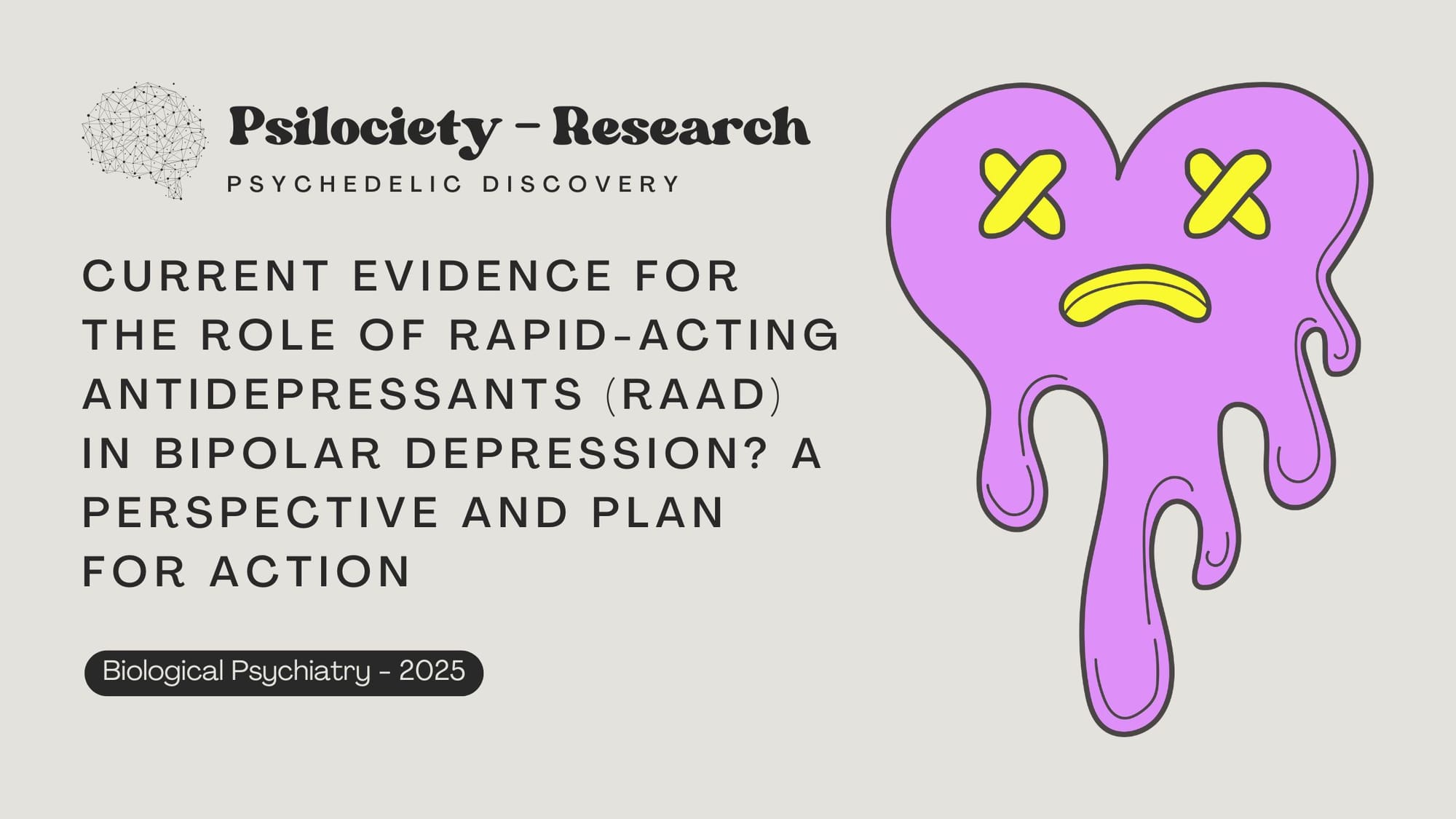Current Evidence for the Role of Rapid-Acting Antidepressants (RAAD) in Bipolar Depression? A Perspective and Plan for Action
Reviewing the potential of RAADs like ketamine and psilocybin for bipolar depression, highlighting current research and future directions.

Title & Introduction
- Paper Title: Current Evidence for the Role of Rapid-Acting Antidepressants (RAAD) in Bipolar Depression? A Perspective and Plan for Action
- Published In: Biological Psychiatry
- Publish date: 2025
- Authors: Jonathan Repple, Maximilian Bayas, Chiara Möser, Nene F. Kobayashi, Andreas Reif
- Objective: To review existing research on rapid-acting antidepressants (RAADs) for bipolar depression and propose a roadmap for future studies.
- Importance: While rapid-acting antidepressants such as ketamine show promise for major depressive disorder (MDD), their application in bipolar depression remains underexplored, despite the urgent need for faster-acting and more effective treatments.
Summary & Takeaways
Key Takeaway: RAADs, including ketamine, psilocybin, and novel agents, may offer promising alternatives for treating bipolar depression, but further research is needed to ensure efficacy and safety.
Practical Application: Implementing RAADs in bipolar depression treatment protocols could lead to faster symptom relief, reducing hospitalization rates and improving patient outcomes.
Key Background Information
- Context: Bipolar depression remains challenging to treat, with current options often requiring weeks to take effect. Rapid-acting interventions could fill this therapeutic gap.
- Hypothesis: RAADs targeting the glutamatergic, GABAergic, and serotonergic systems may provide rapid relief for bipolar depression without inducing mania.
Methodology
- Study Design: Literature review and analysis of existing clinical and preclinical studies on RAADs for bipolar depression.
- Participants: Review includes studies on bipolar depression patients and relevant animal models.
- Intervention/Exposure: Discussion of RAADs such as ketamine, esketamine, psilocybin, and GABA-A modulators.
- Controls: Comparisons to standard antidepressants and placebo groups in reviewed trials.
- Duration: Variable across studies; emphasis on short-term efficacy (hours to days).
Key Findings
Primary Outcomes:
- Ketamine and esketamine show rapid antidepressant effects in bipolar depression with relatively low risk of mania induction.
- Psychedelics such as psilocybin and 5-MeO-DMT may also provide rapid relief but require further validation.
- GABAergic compounds like zuranolone demonstrate potential as RAADs for mood stabilization.
Secondary Outcomes:
- Current RAAD research in bipolar depression is limited compared to unipolar depression.
- More phase II and III trials are needed to establish long-term safety and effectiveness.
- Mechanistic studies suggest that RAADs work through synaptic plasticity and neuroinflammation pathways.
Interpretation & Implications
- Conclusion: RAADs hold significant promise for bipolar depression, but research gaps must be addressed to optimize treatment strategies.
- Implications: The integration of RAADs could shift clinical paradigms, offering quicker interventions for severe bipolar depression.
- Limitations: Concerns over long-term effects, potential for abuse, and regulatory hurdles remain.
Researchers & Publication
- Researchers: Jonathan Repple, Maximilian Bayas, Chiara Möser, Nene F. Kobayashi, Andreas Reif
- Publication Name: Biological Psychiatry
- Study URL: 10.1016/j.biopsych.2025.02.903

